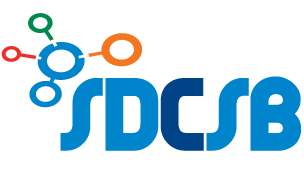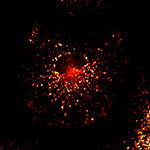Genetics, Bioinformatics and Systems Biology Colloquium
Thursdays, 12:00 pm – 1:00 pm
UC San Diego, Powell-Focht Bioengineering Hall, Fung Auditorium
Complete schedule here
The Bioinformatics Undergraduate Program
Advances in biotechnology allow us to probe and assay thousands of biomolecules simultaneously. The wealth of information produced must be analyzed using computation, creating a demand for computational biologists, who are trained in biology, mathematics, chemistry, and computer sciences. Bioinformatics will have a tremendous impact upon our understanding of cellular functions, protein structure and design, evolutionary biology, regulatory networks, and the molecular basis of disease. An interdisciplinary undergraduate major leading to B.S. degrees with a major or specialization in bioinformatics was created in Fall 2001. This major is designed to provide career opportunities for B.S. graduates, as well as opportunities for future advanced training at the graduate level. Students graduating from this program are in great demand at top graduate schools, medical school, and industry.
Admissions
Students wishing to pursue a study in bioinformatics may select from majors offered by the Division of Biology, or the Departments of Bioengineering, Chemistry and Biochemistry, and Computer Science and Engineering. A major in bioinformatics is available within each of the listed departments and divisions. All participating departments have a substantially common curriculum, but each has its own emphasis through its electives, and there are some differences in the core requirements.
The following courses were created for the Bioinformatics Undergraduate Program. Please consult the course catalog and your department for the full list of requirements for each department.
Lower Division
-
BILD 94. Professional Issues in Bioinformatics (1 unit)
This seminar will introduce undergraduate students, especially freshmen and sophomores, to a variety of issues and topics in the field of bioinformatics.
Upper Division
-
BENG/BIMM/CSE 181. Molecular Sequence Analysis (4 units)
This course covers the analysis of nucleic acid and protein sequences, with an emphasis on the application of algorithms to biological problems. Topics include sequence alignments, database searching, comparative genomics, and phylogenetic and clustering analyses. Pairwise alignment, multiple alignment, DNA sequencing, scoring functions, fast database search, comparative genomics, clustering, phylogenetic trees, gene finding/DNA statistics. This course open to bioinformatics majors only.
Prerequisites: CSE 100 or Math 176, CSE 101 or Math 188, BIMM 100 or Chem 114C. -
BENG/BIMM/CHEM/CSE 182. Biological Databases (4 units)
This course provides an introduction to the features of biological data, how that data are organized efficiently in databases, and how existing data resources can be utilized to solve a variety of biological problems. Object-oriented databases, data modeling and description, survey of current biological database with respect to above, implementation of database focused on a biological topic. This course open to bioinformatics majors only.
Prerequisites: CSE 100 or Math 176. -
BENG 183. Applied Genomic Technologies (4 units)
Principles and technologies for using genomic information for biomedical applications. Technologies will be introduced progressively, from DNA to RNA to protein to whole cell systems. The integration of biology, chemistry, engineering, and computation will be stressed. Topics include: technology for the genome, DNA chips, RNA technologies, proteomic technologies, physiomic and phenomic technologies, analysis of cell function.
Prerequisites: BIMM 100 or Chem 114C and BICD 110, or consent of department. (F) -
BENG/BIMM/CHEM/CSE 184. Computational Molecular Biology (4 units)
This advanced course covers the application of machine learning and modeling techniques to biological systems. Topics include gene structure, recognition of DNA and protein sequence patterns, classification, and protein structure prediction. Pattern discovery, hidden Markov models/support vector machines/neural network/profiles, protein structure prediction, functional characterization of proteins, functional genomics/proteomics, metabolic pathways/gene networks.
Prerequisites: BIMM 181 or BENG 181 or CSE 181, BIMM 182 or BENG 182 or CSE 182 or Chem 182. -
BIMM 185. Bioinformatics Laboratory (Advanced) (4 units)
This course emphasizes the hands-on application of bioinformatics methods to biological problems. Students will gain experience in the application of existing software, as well as in combining approaches to answer specific biological questions. Sequence alignment, fast database search, profiles and motifs, comparative genomics, gene finding, phylogenetic trees, protein structure, functional characterization of proteins, expression anaylysis, computational proteomics. This course open to bioinformatics majors only.
Prerequisites: two courses out of BIMM 181 or BENG 181 or CSE 181, BIMM 182 or BENG 182 or CSE 182, BENG 183, BIMM 184 or BENG 184 or CSE 184. Attendance at the first lecture/lab is required. Nonattendance will result in the student’s being dropped from the course roster. -
MATH 186. Probability Statistics for Bioinformatics (4 units)
This course will cover discrete and random variables, data analysis and inferential statistics, likelihood estimators and scoring matrices with applications to biological problems. Introduction to Binomial, Poisson, and Gaussian distributions, central limit theorem, applications to sequence and functional analysis of genomes and genetic epidemiology. (Credit not offered for Math 186 if Econ 120A, ECE 109, Math 180A, Math 181A, or Math 183 previously or concurrently.)
Prerequisites: Math 20C (21C) with a grade of C– or better, or consent of instructor.
Read more about Bioinformatics Undergraduate Program













